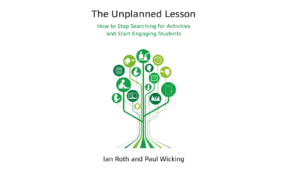Pedagogy of The Oppressed: A Book Review
2016 was the year of social justice. IATEFL showcased a talk by J.J. Wilson promoting the work of famed Brazilian pedagogue Paulo Freire. Not knowing anything about Freire or Critical Pedagogy I decided to read the book which has, according to the cover, sold millions of copies. When I read education themed books there are generally four things I hope to find:
- Interesting and original ideas
- Information about research into teaching
- Clear, well written prose
- Brevity
A book doesn’t have to meet all of these criteria to be good but meeting one or two would certainly be a good sign. In this article I will review Freire’s ‘The Pedagogy of the Oppressed’ in light of these criteria.
The first thing I noticed about the Pedagogy of the Oppressed was that it is entirely conjecture. As someone who places a lot of importance on research to inform my teaching practice I was somewhat alarmed to realise that the entire work is a collection of one man’s opinions about teaching with a few nods to famous political and intellectual figures. Freire does not present educational research nor talk about the research of others.
He simply asserts that such and such is the case, and then builds on his assertions. For example, in one passage he says:
A careful analysis of the teacher-student relationship at any level, inside or outside the school, reveals its fundamentally narrative character.
The sceptical reader may well wonder exactly what ‘careful analysis’ was done, how this conclusion was reached and what exactly a relationship that is ‘narrative’ in character means. Freire provides no answers to these questions, rather, he continues throughout the book to place supposition upon supposition. For instance, in one section he writes that ‘the oppressed’ are not fully human. He then builds from there making other claims such as “the violence of the oppressors prevents the oppressed from being fully human” (p30) or that without inquiry and praxis “individuals cannot be truly human” (p72). Thus we have an untested claim (the subhuman nature of ‘the oppressed’) used to build other equally unsubstantiated claims.
As noted above, clarity is something I value in books. Unfortunately, I found the book to be poorly organised and vague. It’s hard for a reader to follow the logic of the argument that Freire attempts to make. It also includes, as Rafferty points out, a lot of “dense jargon and Marxist terminology” (in Ohliger 1995). The uninitiated must quickly get up to speed with terms like praxis, antidialogical, dialectical and critical interventions. It is hard to find a quote short enough to convey the bad style, but the following should give reader a sense of what to expect from Freire:
Problem-posing education is revolutionary futurity. Hence it is prophetic (and, as such, hopeful). It corresponds to the historical nature of humankind. And, it affirms women and men as beings who transcend themselves, who move forward and look ahead, for whom immobility represents a fatal threat, for whom looking at the past must only be a means of understanding more clearly what and who they are so that they can more wisely build the future (84)
The book is often a slog and even includes passages in French with no translation. Bruce Boston writes that it “ill behoves an educator for liberation to present himself to interested readers cloaked in such an obscure, convoluted, dull, overly metaphysical style.” (Grabowski 1972:86)
Progressivism –The ‘banking model’
Chapter 2 focuses almost exclusively on what Freire labels the ‘banking’ method of education. Freire seems to be presenting interesting and original ideas here and supporters may quote this as one of his important contributions. However, he is essentially describing what would now be called ‘traditional’, ‘teacher centric’ or ‘transmission’ styles of education. The ‘banking model’ is, to quote the famous educational aphorism ‘filling the pail’ but with a Marxian twist. If you can assume an anti-capitalist world view in your readership then calling this model the ‘banking model’ is a nice way to combine the bogey men of capitalism and Gradgrindian educational practices.
Freire’s writing is more poetic than analytical.
For instance he writes that a traditional teachers turns students “into “containers,” into “receptacles” to be “filled” by the teacher.”(74) Freire fails to show why students receiving knowledge in this way is suboptimal. We could, for instance, be shown research which indicates that passive learning leads to worse outcomes or that student surveys indicate that students find that kind of teaching uninspiring and demotivating. Freire instead choses to continue to insinuate that teacher centric learning is bad by associating it with negative terms such as ‘mechanical’, ‘depositories’ and ‘meekly [listen]’(pp72). Freire argues that the banking model “inhibits [students] creative power”(p81) and “In the banking concept of education, knowledge is a gift bestowed by those who consider themselves knowledgeable upon those whom they consider to know nothing”(p72).
Freire’s criticism is not based on any evidence.
It is basically premised on a metaphor. If we accept that banking is bad, then it follows that a banking model of education must also be suspect. However, it is possible to view the same phenomenon through the same lens but arrive at the opposite conclusion. Suppose we were to look at banking in a different way. What is it that we deposit in a bank? Money. And what happens to it? It grows! And where does that lead? To wealth! And so students end up enriched due to the banking model. Hurrah for banks! This reading of the so-called ‘banking model’ is arguably more accurate as background knowledge is one of the most important factors in fostering critical thinking. A person cannot be a critical thinker without knowledge to make evaluations from. (See for example Marzano 2004, Willingham 2009)
Mystical
There is also a rather odd ‘mystical’ tone to the book which was, personally, very off-putting for a book purporting to be about education. Here are a few extracts from the text:
Human existence cannot be silent, nor can it be nourished by false words, but only by true words, with which men and women transform the world. To exist, humanly, is to name the world, to change it. (90)
A person is merely in the world, not with the world or with others; the individual is spectator, not re-creator. In this view, the person is not a conscious being (corpo consciente); he or she is rather the possessor of a consciousness: an empty “mind” passively open to the reception of deposits of reality from the world outside. (77)
Education is thus constantly remade in the praxis. In order to be, it must become. (86)
It even becomes somewhat religious in places such as when Freire describes adherents as ‘converts’ and claims that they ‘truly desire to transform the unjust order’ (62).
Marxism
As well as these issues, the overtly political (explicitly Marxist) aspect of the text did not sit well with me. Freire makes no attempt to hide his admiration for Marx and the critical pedagogy program he proposes has the explicit aim of creating the conditions which would lead to a Marxist revolution. To be absolutely clear, the word ‘critical’ in Freire’s sense is not teaching learners to be independent thinkers who come to their own conclusions. Rather it is about making ‘the oppressed’ aware of their situation so that they will act in changing it through ‘Praxis’.
Revolution is mention throughout the book and it is perhaps more accurate to describe the book as a political text which discusses pedagogy than a pedagogical text which discusses politics. In chapter 4 Freire drops all pretence of writing about education. The words teacher and student are replaced with ‘revolutionary’ and ‘revolutionary leader’. More worrying still is the type of revolution that Freire would like critical pedagogy to usher in. He quotes Lenin and Che Guevara approvingly which might raise a few eyebrows, but more worrying still is that Freire seems to views the Chinese revolutionary model, as the idealisation of his program.
For instance, he talks about stage two of revolution being when “pedagogy cease to belong to the oppressed and becomes a pedagogy of all people in the process of permanent liberation” (54). There is a footnote in this section saying “this appears to be the fundamental aspect of Mao’s Cultural Revolution”. For any teacher familiar with what transpired during the Cultural Revolution this is a chilling prospect. In another section Freire suggests that Mao’s ideas contain “an entire dialogical theory of how to construct the program content of education” (93).
Singer notes that Marx saw communism as “the riddle of history solved” (2018:115). Freire replicates Marx’s mistake of assuming his view of history was ‘scientific’. Marx’s history was Hegelian rather than scientific. He saw it moving inexorably toward some noble aim. The ‘end of history’ was communism. Marx ‘scientifically’ foretold it and Freire’s pedagogy is intend as the midwife of the final revolution. (As an aside Freire’s ideas about revolution are as evidence free as his ideas about education. Thus when he states “the earlier dialogue begins, the more truly revolutionary will the movement be” is nowhere supported by data.)
Freire claims to want students to be critical thinkers but clearly, in his mind at least, the historical deck is stacked in favour of his desired outcomes. Those thinking ‘critically’ will arrive at the ‘right’ conclusions and so Freire sees no problem with the teacher injecting his own politics into the classroom. Stotsky (in Ohliger 1995) summarises the issues with Freire’s program thus:
Although Freire describes his pedagogy as ‘liberatory’ [in Literacy], the selections from more advanced reading materials, which clearly illustrate the nature of their political content, suggest very little possibility for the development of critical thinking.…The adult learners, he points out, are supposed to learn how to ‘think correctly.’ In fact, the philosophy underlying the pedagogy of the oppressed seems less a theory of liberatory education than a theory of literacy as instrument of social control
Freire’s is not a pedagogy of the oppressed but rather an oppressive pedagogy
I’m told by Brazilian friends that quality of the translation may be the cause of misunderstandings though I struggle to see how the issues enumerated above could all be translation alone. The pedagogy of the oppressed did not meet any of the criteria I use to judge educational books. In 2019, there are so many interesting and informative books on education available. I strongly recommend choosing one of those instead.
References
- Elias, J.L., 1975. The Paulo Freire literacy method: A critical evaluation. McGill Journal of Education/Revue des sciences de l’éducation de McGill, 10(002).
- Freire, P., 2000. Pedagogy of the oppressed. New York: Bloomsbury Publishing USA.
- Grabowski, S.M (ed), 1972. Paulo Freire, A Revolutionary Dilemma for the Adult Educator, Syracuse University, USA,
- Marzano, R.J., 2004. Building background knowledge for academic achievement: Research on what works in schools. Alexandria: ASCD.
- Ohliger, J., 1995. Critical views of Paulo Freire’s work. University of Wollongong. Available online at http://www.bmartin.cc/dissent/documents/Facundo/Ohliger1.html
- Singer, P., 2018. Marx: A very short introduction. Oxford: Oxford University Press.
- Willingham, D.T., 2009. Why don’t students like school?: A cognitive scientist answers questions about how the mind works and what it means for the classroom. John Wiley & Sons.




